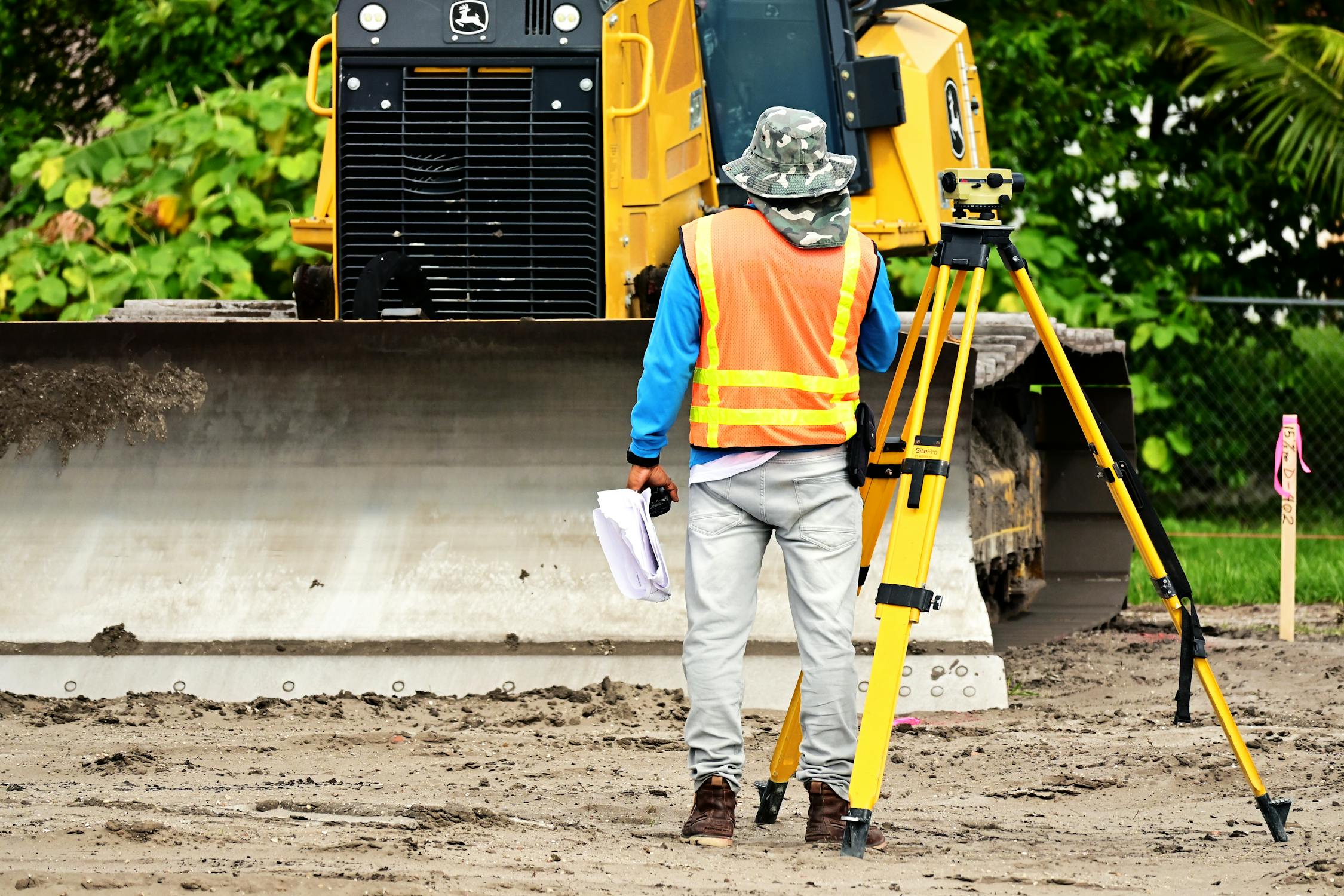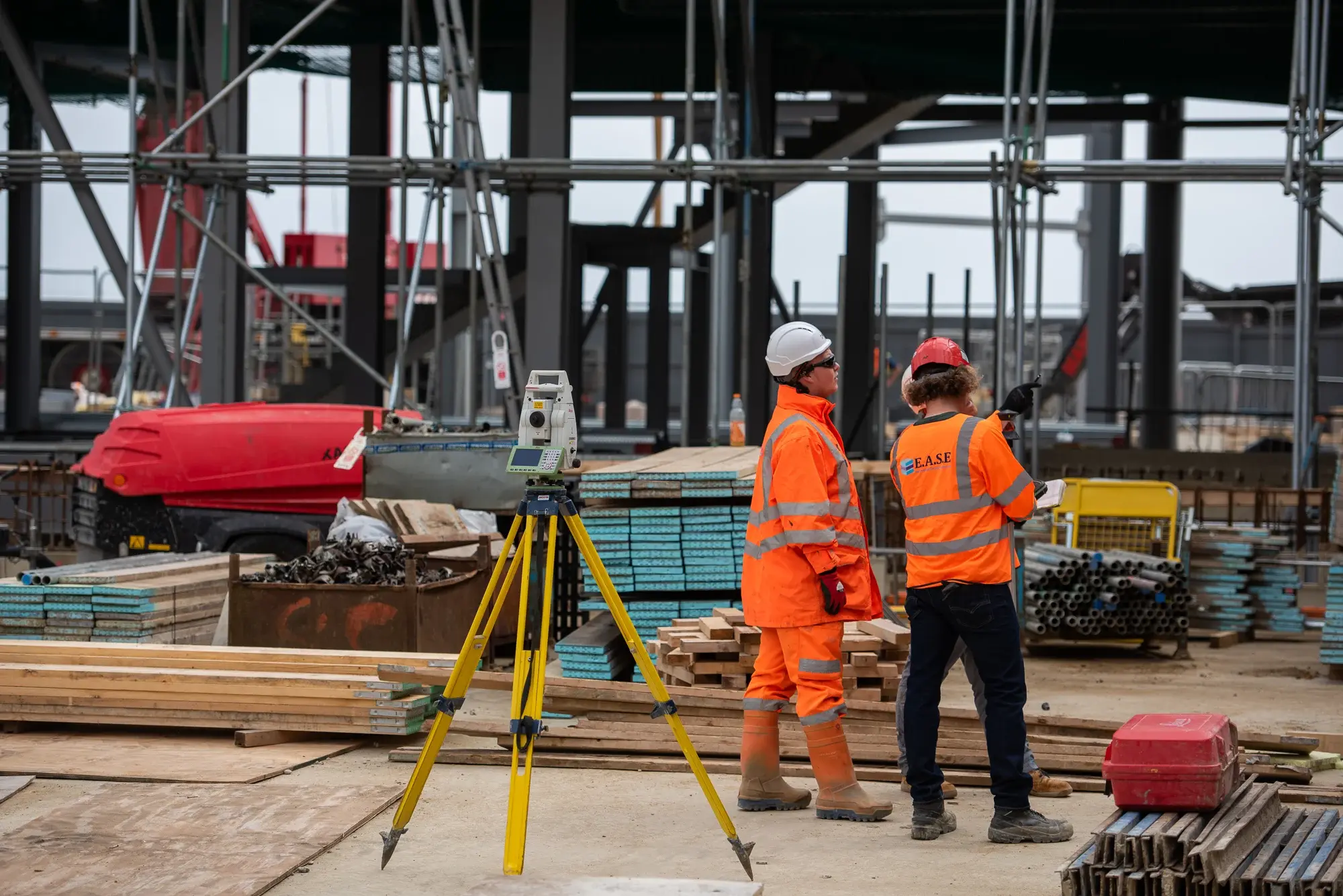.jpg)
Curious about how much civil engineers make in Virginia? Whether you're a recent graduate exploring your first job offer or a seasoned professional aiming for your PE license, understanding salary trends is key to planning your career. Virginia offers a dynamic job market for civil engineers, with competitive pay across various experience levels and specialties—from entry-level positions to licensed Professional Engineers (PEs). In this blog, we’ll break down civil engineer salaries in Virginia, explore what factors impact your earnings, and share insights to help you maximize your compensation in this thriving sector.
Average Salary for Civil Engineers in Virginia
The average salary for civil engineers in Virginia ranges from $62,000 to $1,00,000 annually, depending on location, experience, and specialisation. For those just starting out, the entry level civil engineer salary Virginia typically falls between $64,000 to $1,04,000. On the higher end, professionals with advanced certifications like a PE license or a PhD can command $120,000 or more, aligning with the upward Virginia civil engineering salary trends.
These numbers put Virginia close to major metros like Los Angeles, where the average civil engineer salary is around $85,000. Whether you're working in Arlington, Albemarle, or Norfolk, your potential earning power continues to rise with experience and skill enhancement.
Salaries as per stages in career:
1. Entry-Level Engineer
Fresh graduates begin as Design Engineers or Junior Engineers. They assist with drafting, surveying, and writing technical reports. With average salaries between $58,000–$98,000, this stage is focused on learning tools, codes, and engineering basics.
2. Mid-Level Engineer
With experience, engineers become Project or Site Engineers. They coordinate fieldwork, handle client communication, and ensure regulatory compliance. Salaries range from $122,327, depending on project size and location within Virginia. Leadership responsibilities begin at this stage.
3. Senior Engineer
Engineers at this level oversee entire projects, manage teams, and handle budgeting and scheduling. They lead technical decisions and stakeholder meetings. Salaries exceed $64,746, often reaching $146,913, especially in urban centres like Arlington and Richmond.
4. PE-Certified or PhD Engineer
If you have a PE license or a PhD, you can get senior roles like Principal Engineer or Consultant. These jobs let you approve designs, give expert advice, or lead research. The salary of civil engineer with PhD in Virginia is usually between $59,000 to $95,000, depending on your field and company.

5 Career Paths for Civil Engineers in Virginia
Virginia’s dynamic mix of coastal cities, historical towns, and expanding urban centres makes it a thriving ground for civil engineers. From flood-resilient infrastructure in Norfolk to high-rise projects in Arlington, civil engineers in Virginia have varied and promising career paths.
1. BIM Engineer
With Virginia's focus on smart city development and digital construction, BIM Engineers are increasingly vital. They use tools like Revit, Navisworks, and Civil 3D to create 3D models that improve project coordination and minimise costly errors.
2. Structural Engineer
Structural engineers in Virginia ensure that buildings, bridges, and public infrastructure can withstand local risks, including hurricane winds and snow loads. Their expertise is essential for both historic renovations and modern vertical builds.
3. Transportation Engineer
As Virginia expands its metro systems and highway networks, transportation engineers play a key role in traffic design, road safety, and mobility planning. Projects often involve collaboration with the Virginia Department of Transportation (VDOT).
4. Environmental Engineer
Environmental engineers in Virginia work across projects like Chesapeake Bay protection, wastewater treatment, and eco-friendly site development. Regulatory compliance with DEQ and EPA guidelines is central to their role.
5. Geotechnical Engineer
From coastal erosion concerns in Hampton Roads to rocky terrains in the Blue Ridge region, Virginia’s diverse geography requires strong geotechnical expertise. Geotechnical engineers test soil and ground conditions for infrastructure safety.
Average Civil Engineering Salaries in Virginia Cities
The average salary in civil engineering can change based on location and experience. Here’s a quick look at how average annual salaries stack up across key regions in the state:
|
City/Region |
Average Annual Salary (2026) |
|
Arlington |
|
|
Fairfax |
|
|
Richmond |
|
|
Virginia Beach |
|
|
Albemarle County |
|
|
Norfolk |
|
|
Roanoke |
|
|
Chesapeake |
|
|
West Virginia (for comparison) |
Albemarle Virginia civil engineer salary averages just under $90,000, while the average civil engineer salary West Virginia remains slightly lower due to less urban development and smaller-scale projects.
Also Read - Massachusetts Civil Engineer Salaries: Boston & Statewide Trends
6 Factors Affecting Civil Engineer Salary in Virginia
A person's civil engineering pay in Virginia depends on personal, work-related, and location influences. There are six main factors that decide the amount a civil engineer earns in the state:
1. Employer Type
The amount you earn is dependent on your employer. Usually, private businesses pay higher salaries to their staff than state agencies do. Because Arlington and Fairfax have large budgets and many projects, federal workers here tend to receive the highest compensation.
2. Experience Level
Your years of experience significantly influence your pay. The beginning salary for civil engineers tends to be lower, but with 5–10 years of experience, earnings rise sharply as professionals move into management, design leadership, or high-responsibility field roles.
3. Location
Where you work affects your earnings. The average salary for civil engineer in Virginia is significantly higher in urban areas like Arlington and Richmond due to larger infrastructure projects and higher living costs.
4. Certifications and Education
Your earnings can increase if you get certified or gain an advanced degree. To access leadership, project approval, or design authority roles, you must first be eligible, which you become with a PE license, a Master's degree, or a PhD.
5. Specialisation
Those with specialized engineering experience often get paid more. Because of their importance and technical difficulty in big infrastructure projects, geotechnical, structural, and transportation engineering, and BIM skills usually result in higher compensation.
6. Tech Skills
Being good at different software is necessary. Those familiar with AutoCAD, Civil 3D, or BIM tools often make up to 30% more. The skills listed here increase a project's efficiency and are in high demand at tech-focused engineering companies in Virginia and on city projects.

Average Salary in Civil Engineering: 5-Year Trends in Virginia
Thanks for constant campaigning; average salary increases for Virginia state employees have been notable for the past five years. The government seeks to close the public-private pay difference and uphold fair compensation by means of rises commensurate with the cost of living.
If an individual performs really well, their annual base pay could be increased.
- State workers earned a 5% salary increase in 2019; those who had worked three years or more got an additional 2.25%.
- In 2026, state employees received a 3% wage increase.
- Both 2026 and 2026 had a 5% increase.
- Employees are expected to receive another 2% in December, therefore augmenting the total pay increase since 2019 by an additional boost of 5%.
The wage rises show a commitment to helping state employees honor everything they accomplish for Virginia and to assist their financial situation. Those engaged keep searching for solutions to both inflation control and closing the pay gap.
Also Read - Civil Engineer Salaries in Georgia: What to Expect in 2026
Boost Your Salary as a Civil Engineer by Mastering BIM
In today’s competitive AEC industry, standing out as a civil engineer requires more than just a degree. Building Information Modeling (BIM) is transforming how infrastructure projects are designed and executed. By mastering BIM, you not only stay relevant but also open doors to higher-paying roles and faster career growth.
The BIM Advantage:
- Civil engineers with BIM skills are very much in demand, earning over 40% more than the rest.
- Better use of BIM boosts efficiency, makes collaboration far simpler, and helps to achieve superior project results.
How Novatr Helps?
Novatr Offers BIM Professional Course for civil and structural engineers, Novatr’s comprehensive program helps you gain BIM expertise in just 7 months. This course helps you learn about information modeling, parametric structure families, preparing drawings and presenting your designs. It also covers 3D modeling, BIM principles for infrastructure and 4D/5D visualization.
The main focus of this program is on real skills, which involve using the cloud, streamlining BIM techniques, working together and locating clashes. It enables you to use Revit, as well as over 12 other leading building information modeling programs, while following practical methods. Upon the completion of the course, you will be eligible for recognition from Autodesk and Novatr, which can improve your job prospects.
Key USPs:
- Get Dual Certification from Autodesk and Novatr
- Learn Essential BIM Workflows
- 40+ hours of live learning with lifelong access to program content, including multiple RIBA & ISO 19650 Capstone projects.
- Mastering Revit and 10+ BIM software, including Autodesk Revit, Navisworks, Construction Cloud, Bluebeam, Tekla & Civil 3D with industry workflows in just 7 months.
- 48% Average CTC Hike: Get placement assistance to land BIM jobs in globally operating AEC firms.
- ISO Verified Project Experience: Practice your skills by working on an international, standard-structured project
- Career Guidance and Placement Support: Prepare for success with guided interviews, portfolio building, and LinkedIn optimization.
- Dedicated Mentor Support: Stay on track throughout with quick query resolution and personalized feedback. Learn from global mentors who are a part of the top 1% AEC companies.
- Weekly live sessions for learning, revision, and practice.
- Professionally built in-house digital platform to elevate your learning experience.
Why Choose Novatr?
- Trusted by Thousands: Join 6,000+ BIM learners from over 45 countries who have successfully graduated from Novatr.
- Expert-Driven Curriculum: Designed through the analysis of 1,000+ job descriptions and rigorously vetted by 200+ global BIM experts.
- Globally Recognized Certifications: Earn certifications from both Autodesk and Novatr, showcasing your verified expertise.
- Proven Career Impact: Learners report an average salary hike of 48% after course completion.
- Loved by BIM Learners: We have a 4.6+ average rating across platforms like Google and Trustpilot.
In a rapidly evolving industry, Novatr stands out as the premier choice for civil engineers looking to master BIM. Enroll today to future-proof your career and unlock unparalleled growth opportunities in the AEC sector.
Next Step
From federal contracts in Arlington to coastal development in Virginia Beach, the state is rich with high-paying opportunities for civil engineers. However, to exceed the average civil engineer salary in Virginia, staying ahead with BIM skills and professional certifications is crucial.
Novatr’s BIM Professional Course for Civil Engineers gives you the toolkit, mentorship, and career support to thrive in Virginia’s evolving infrastructure ecosystem.
Learn BIM. Lead smarter. Explore Novatr’s and its resource page. to take your next career step.
Was this content helpful to you



.jpg)







